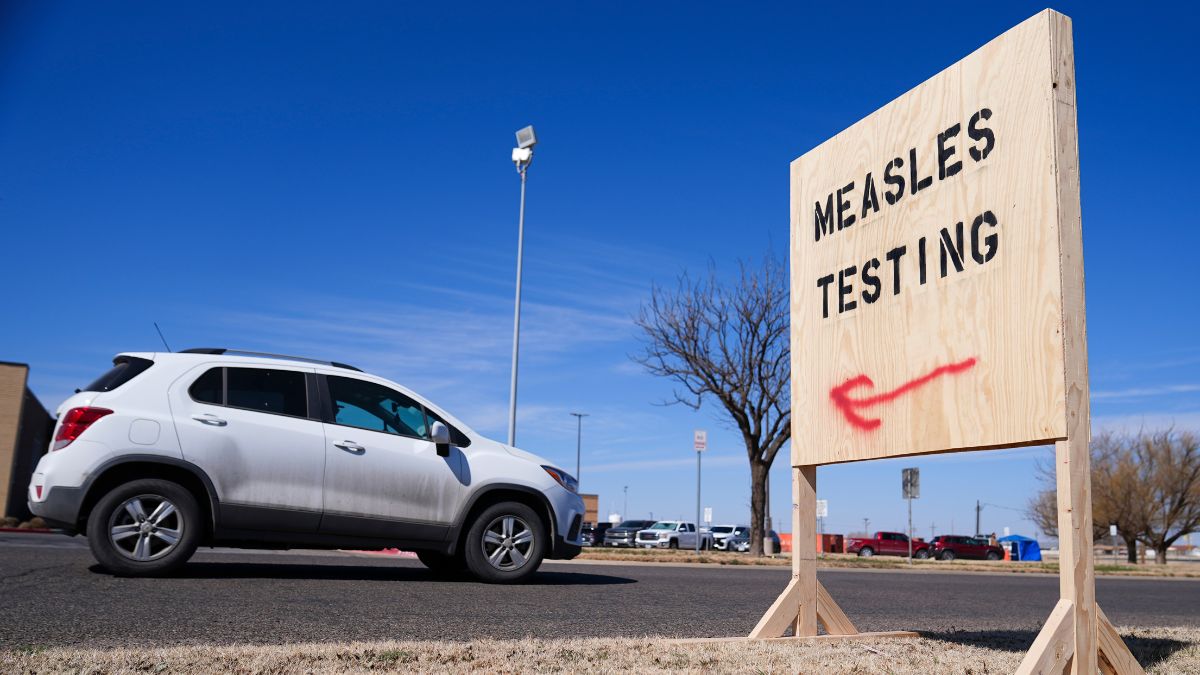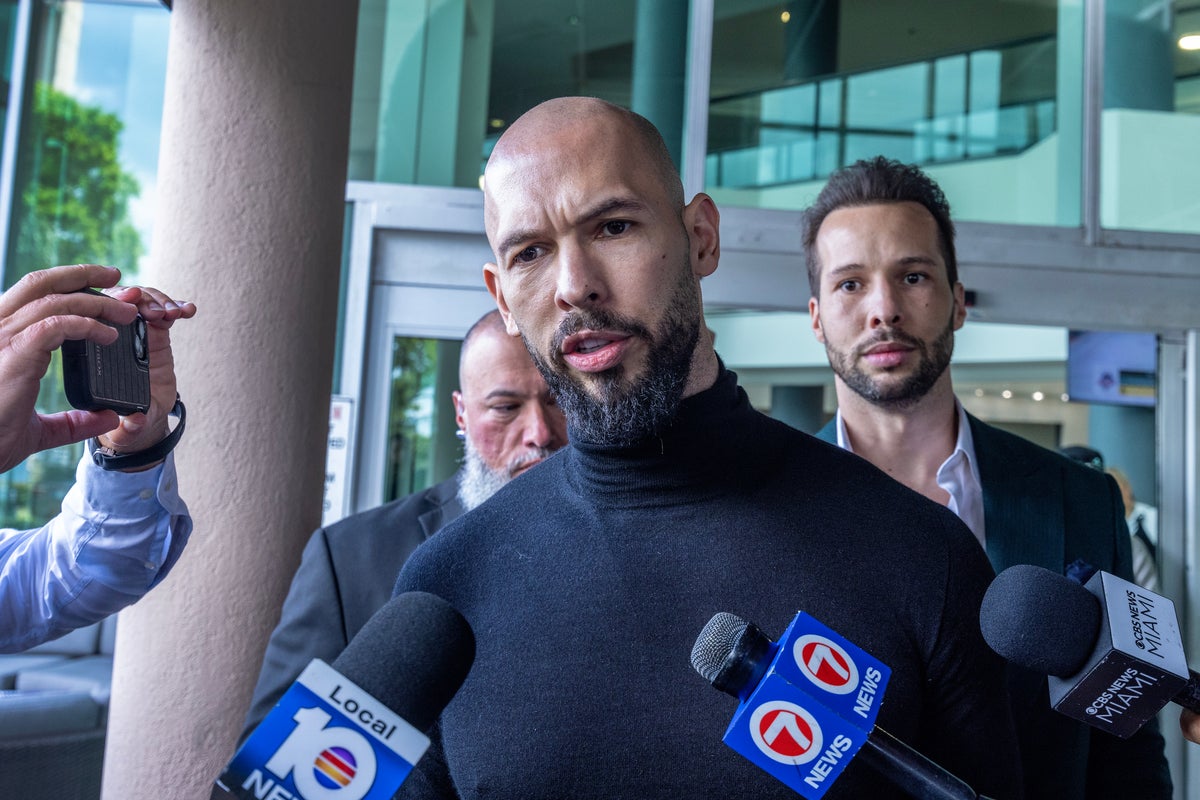More than 130 people in rural Texas and New Mexico have contracted measles, with the largest outbreak in the US in six years expected to continue surging.
A child who had not been vaccinated has died amid the measles outbreak in rural West Texas. This was the
first measles-related death in the US since 2015, despite the disease being highly contagious yet preventable.
The school-aged child had been hospitalised and passed away on Tuesday night as Texas experienced its largest measles outbreak in nearly three decades.
ALSO READ |
Why the US, the UK are losing their measles-free status
The US declared measles “eliminated” in 2000, but outbreaks have resurfaced in recent years, coinciding with growing anti-vaccine sentiment. The last recorded measles death in the country was in 2015, according to the Infectious Diseases Society of America.
The
ongoing outbreak is primarily concentrated in north-western Texas, though cases have also emerged in New Mexico, as well as in Alaska, California, Georgia, New Jersey, New York City, and Rhode Island, according to the Centers for Disease Control and Prevention (CDC).
What began within a close-knit Mennonite community in West Texas has now spread to other under-vaccinated populations, including across state borders. Experts warn that low immunisation rates in these communities create conditions for measles to spread rapidly.
Robert F. Kennedy Jr., the US’ top health official and a vocal critic of vaccines, stated that the Department of Health and Human Services is monitoring the situation and dismissed the Texas outbreak as “not unusual.”
The virus has largely spread through rural towns in West Texas, many of which are centred around the oil industry. Texas Health Department spokesperson Lara Anton said that the “close-knit and under-vaccinated” nature of the Mennonite community is likely a key factor behind the outbreak.
Notably, this community is part of a broader, loosely connected network of churches worldwide, with diverse leadership structures and beliefs. At times, their relationship with health officials and public authorities has been strained or distant.
But what do we know about this community? Why is the outbreak spreading among them? Do they oppose vaccination?
Let’s find out:
Who are the Mennonites?
Mennonites belong to the broader Anabaptist tradition, a movement that emerged in 1525 as a radical branch of the Protestant Reformation in Central Europe.
Other Anabaptist groups today include the Amish, Brethren, and Hutterites. Anabaptists believe a true biblical church must uphold principles such as non-violence, unconditional forgiveness, adult baptism, church discipline, and a refusal to bear arms or take oaths.
Early Anabaptists faced persecution and execution under both Catholic and Protestant rulers in Europe. This history continues to shape some groups’ distrust of government authorities, including public health officials.
Mennonites, named after early leader Menno Simons, have diverse practices today.
Some have integrated into mainstream culture, dressing conventionally and focusing on peacebuilding and social justice. Others maintain a lifestyle similar to the Amish, living in close-knit, separatist communities with limited technology, a commitment to nonviolence, male leadership, and traditional dress, including head coverings for women. Many fall somewhere between these two approaches.
According to the Mennonite World Conference, Anabaptist-related churches have over 2 million baptised members across 86 countries.
ALSO READ |
India’s vaccine record: Guess how many children missed out on vaccines in 2023
What are Old Colony Mennonites in Texas?
The outbreak has particularly affected Gaines county and some adjacent areas.
While it’s not immediately clear which Mennonite community has been affected, the Gaines County area includes a community with a distinctive history.
Many other North American Amish and Mennonites trace their roots to immigration directly from Western Europe in the 18th and 19th centuries, said Steven Nolt, professor of history and Anabaptist Studies at Elizabethtown College in Pennsylvania.
In contrast, the Seminole area includes a community of Old Colony Mennonites, which has a much more circuitous history of migration, Nolt said.
Old Colony Mennonites migrated first to the Russian Empire, then to Canada, then to Mexico, fleeing government pressures to assimilate, according to Nolt. As economic conditions deteriorated in Mexico, some moved to such areas as Gaines County and other communities in Texas and nearby states in the 1980s and 1990s. All along, they have preserved their Low German dialect and other cultural distinctions.
Gaines County is also home to one of the highest rates of school-aged children in Texas who have opted out of at least one required vaccine, with nearly 14% skipping a required dose last school year.
Are Mennonites against vaccination?
“Historically and theologically, there has not been any religious teaching against immunisation in Mennonite circles,” Nolt told AP via email.
“There’s no religious prohibition, no body of religious writing on it at all. That said, more culturally conservative Mennonite (and Amish) groups have tended to be under-immunised or partially-immunised.”
Partly, he said, that’s because they don’t engage as regularly with health care systems as more assimilated groups do. Many traditional Anabaptist groups did accept vaccinations that were promoted in the mid-20th century, such as for tetanus and smallpox, but they have been more sceptical in recent years of newly introduced vaccines, Nolt said.
But Old Colony groups who arrived in the late 20th century also “missed the whole mid-century immunisation push, as they weren’t in the U.S. at that time.”
What are the state rules on student exemptions from vaccines?
All 50 states and the District of Columbia require vaccines for students to attend school, according to the National Conference of State Legislatures. Many states align their mandates with recommendations from the Centres for Disease Control and Prevention.
All states allow exemptions for medical reasons, while most allow exemptions for religious or personal reasons, or both. Only five states — California, Connecticut, Maine, New York and West Virginia — have allowed no non-medical exemptions, according to the conference, but West Virginia is taking steps this year to allow religious or philosophical exemptions.
Texas law allows exemptions for “reasons of conscience, including a religious belief.”
US kindergarten vaccination rates dipped in 2023, and the proportion of children with exemptions rose to an all-time high, according to federal data posted in 2024.
With inputs from AP


)

